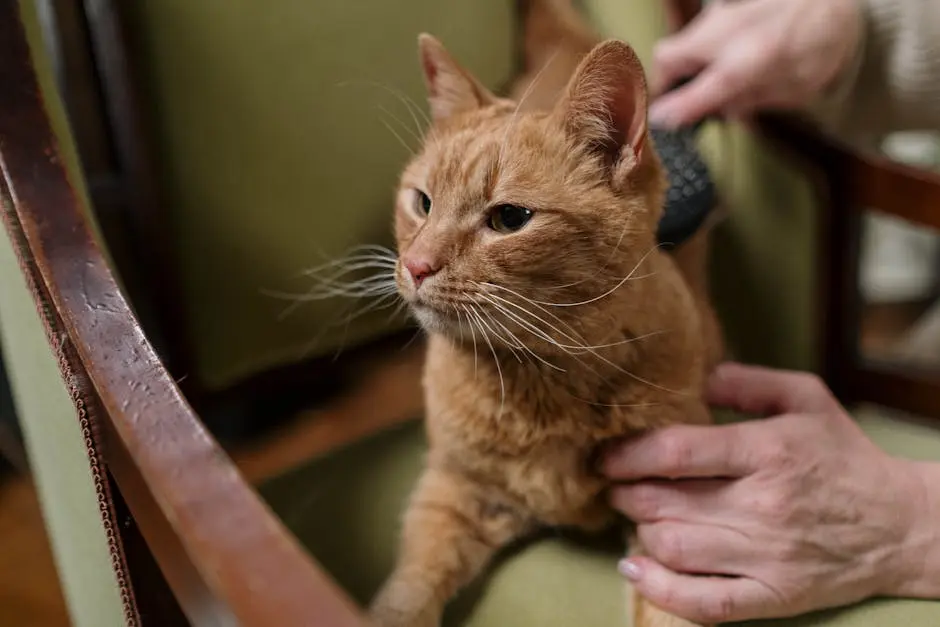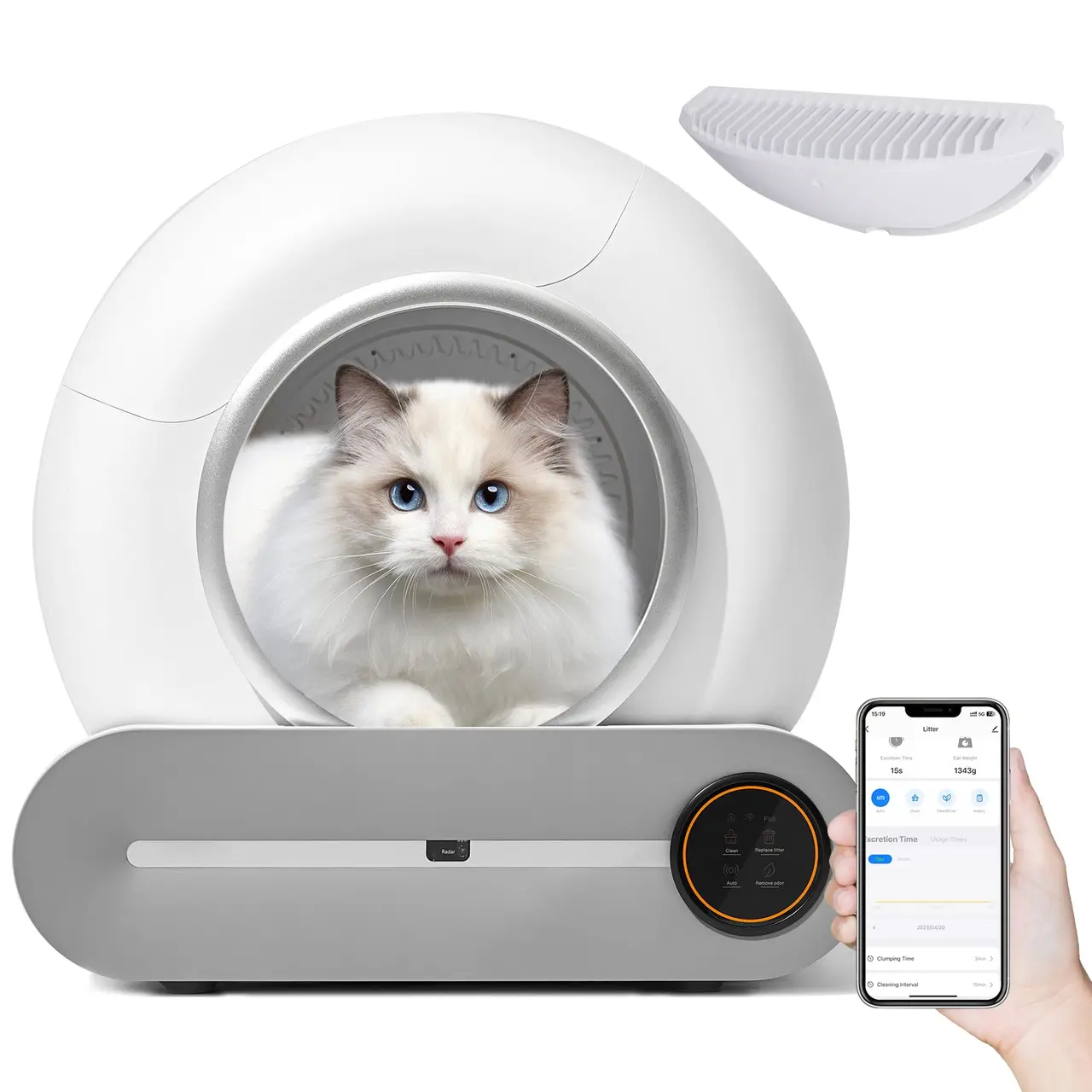Discover the latest effective cat care strategies! No more stinky home!
Living with cats can be a delightful experience, but sometimes their presence can lead to some undesirable odors in our homes. Whether it’s the litter box, their fur, or other factors, addressing these smells can be a challenge. In this blog, we will explore effective cat care strategies to keep your home smelling fresh and pleasant.
Understanding the Sources of Cat Odors
Before diving into solutions, it’s important to identify where those stinky odors are coming from. Common sources include litter boxes, cat food dishes, and even your cat’s fur. Understanding these sources will help you develop a plan to address them effectively. For instance, litter boxes are often the most significant culprits, especially if they are not cleaned regularly. Even the best litter can struggle to contain odors if the box isn’t maintained. Additionally, the food you choose for your cat can contribute to unpleasant smells. Low-quality food might not only lead to health issues but can also cause bad breath and smelly stools.
Moreover, don’t overlook the importance of your cat’s grooming habits. Cats are known for being fastidious groomers, but if they’re not keeping up due to health problems or behavioral issues, this can lead to accumulated odors. Regular health check-ups and grooming sessions can help mitigate these odors. Also, be mindful of other factors such as age or diet that can affect how your cat smells. Sometimes, the solution may be more straightforward than you think, such as changing your cat’s diet or enhancing their grooming routine.
Choosing the Right Litter for Odor Control
Not all cat litter is created equal. When selecting litter, look for options that offer superior odor control. Clumping clay litter is popular among cat owners because it makes cleaning easier and often contains ingredients specifically designed to neutralize odors. Alternatively, natural litters made from recycled materials or pine can be just as effective and are generally more environmentally friendly. When transitioning to a new type of litter, it’s crucial to introduce it gradually to avoid stressing your cat.
Many cat owners swear by certain brands known for their excellent odor-neutralizing capabilities, like Tidy Cats and Dr. Elsey’s. But, just like our furry friends, every cat is unique! You might find that your kitty has specific preferences when it comes to litter texture or type. This means a bit of experimentation might be necessary to discover what works best for your pet—and that can make a big difference not just in managing odors, but also in ensuring your cat’s comfort and happiness.
Speaking of making your home more comfortable, have you ever thought about how technology can help? Imagine a cutting-edge robot designed to assist with cleaning tasks at home, reducing the time you spend dealing with litter boxes or pet hair. This could free you up for more quality time with your beloved cats while keeping your space fresh and pleasant. If that sounds like something you’d be interested in, check out this article about the latest innovations in home cleaning robots and automated cat litter boxes at Best Gift Ever. Embracing technology can be a fantastic way to support your cat care routines and maintain a stinky-free environment!
An often-overlooked tip is to keep the litter box in a well-ventilated area. This helps with odor control significantly, allowing fresh air to circulate. If you are uncertain about the right type of litter for your cat, consider reaching out to online communities or forums like Cat Forum or The Cat Site. These platforms can provide invaluable insights based on collective experiences.
Setting Up an Effective Cleaning Routine
A consistent cleaning routine is key to managing odors. Discover how often to clean your cat’s litter box and other areas in your home to keep smells at bay. A general rule of thumb is to scoop out the litter daily and change the entire contents weekly. Incorporating this routine into your daily life can be simple, especially if you designate a specific time for it. Consider setting an alarm or reminder on your phone as a prompt until it becomes a habit.
In addition to cleaning the litter box or acquiring a self-cleaning one, also pay attention to other areas that might harbor odors, like your cat’s bed, toys, and food dishes. Regular washing of these items can dramatically improve the smell of your home. A mix of mild soap and water works well for most items. For areas that are especially odorous, consider using pet-safe vinegar solutions to neutralize smells.
As part of your cleaning regimen, don’t forget common hiding spots where odors might accumulate. Floor mats, carpets, and even corners of rooms can retain smells. Vacuums with pet hair attachments can aid in keeping these areas fresh. Regular deep-cleaning sessions not only help in controlling odors but also maintain a cleaner, healthier environment for both you and your cat.
Grooming Your Cat to Reduce Fur Odors
Regular grooming not only keeps your cat looking great but can also help minimize the smell of their fur. Learn tips for effective grooming and the best tools to use. For long-haired cats, a daily brushing session can prevent mats and tangles while also removing dirt and loose fur that can contribute to odors. Short-haired cats also benefit from routine brushing, which helps control shedding and can improve the overall smell of their coat.
Consider investing in grooming tools such as a slicker brush or a cat grooming glove to make the task easier. Besides, bathing your cat occasionally, if they tolerate it, can definitely assist in controlling odors too. Make sure to choose pet-friendly shampoos to keep your feline safe and comfortable during the process. It’s advisable to consult your veterinarian about the appropriate bathing frequency, especially for cats, to ensure you’re not stripping their coat of natural oils, which serve as protective layers.
Additionally, remember that a cat’s diet can influence their smell; therefore, assessing their nutritional intake regularly is vital. High-quality food that supports skin and coat health can lead to less odor overall. When considering dietary changes, it’s always best to consult your vet to ensure that you’re making the right choices that benefit your pet’s health.
Utilizing Air Fresheners and Deodorizers Safely
While it’s tempting to cover up smells with air fresheners, it’s essential to choose pet-safe options. Explore natural alternatives that are pleasant for both you and your cat. Essential oil diffusers can be dangerous for cats, so it’s safer to use natural sprays that contain ingredients like baking soda or vinegar, which neutralize odors effectively without posing any risk.
Plant-based deodorizers are also a good choice. Look for products labeled as non-toxic for pets and free from harmful chemicals. You can even make your own deodorizer at home by combining water, baking soda, and essential oils that are safe for cats, like lavender or chamomile.
While you might want to ventilate your home with commercial air fresheners, be cautious. Make sure you check labels and read user reviews before bringing a new product into your space. Resources like The Spruce Pets can provide helpful guidance on which deodorizers are best suited for homes with pets, ensuring that you’re making informed decisions.
When to Consult Your Vet About Odor Issues
If you’ve tried these strategies and odors persist, it may be time to consult your veterinarian. Being proactive about your cat’s health is essential, as some odors may indicate underlying issues that need professional attention. For instance, a strong odor from your cat’s breath could signal dental disease, while unusual smells from their litter could point to digestive problems.
In cases where you notice sudden changes in smell or associated behaviors, such as changes in appetite or litter box habits, don’t hesitate to seek advice. Sometimes, subtle changes can indicate serious problems. It’s better to err on the side of caution and gain peace of mind from your vet.
Your veterinarian can provide tailored advice based on your cat’s health history, suggesting dietary changes or other strategies that may help alleviate odor issues. As always, being vigilant about your feline friend’s overall wellness is key to a happy, smelly-free home.
Final Thoughts on Keeping Your Home Stink-Free with Cats
By implementing these cat care strategies, you can significantly reduce odors in your home while ensuring your feline friend is happy and healthy. Regular maintenance and attention to your cat’s hygiene will create a more enjoyable environment for both you and your pet. Remember, a little bit of effort goes a long way in keeping your home stinky-free!




































































































